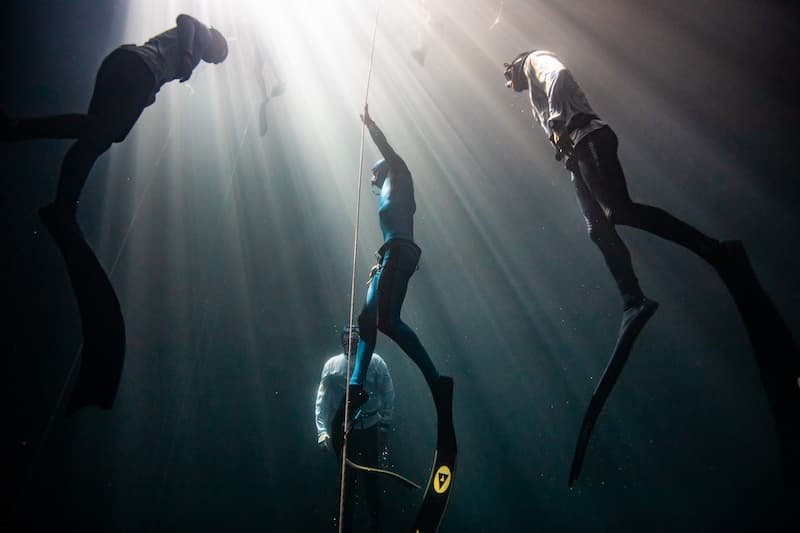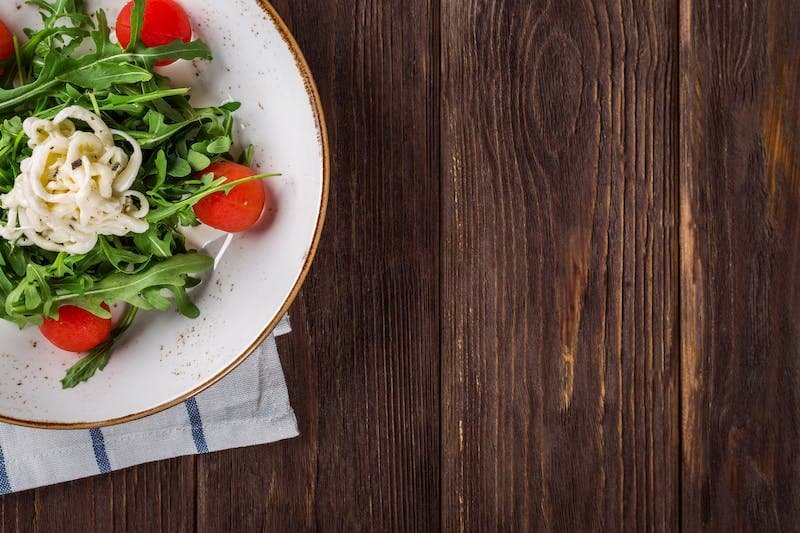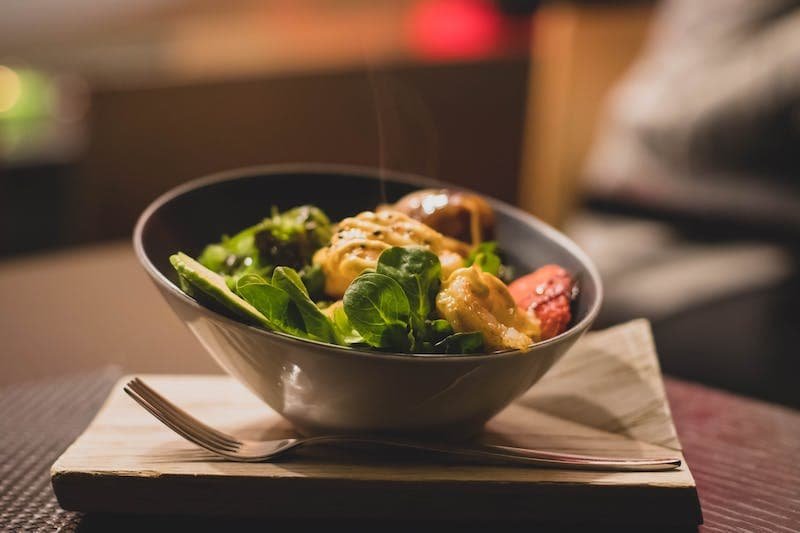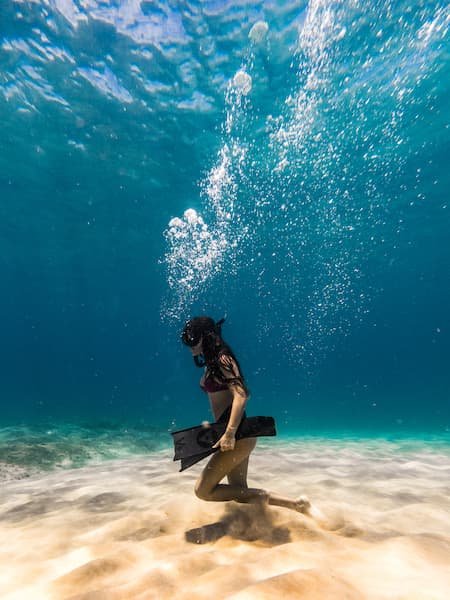
 Katie Wood
Freediver, Writer, Explorer
Katie Wood
Freediver, Writer, Explorer

 Katie Wood
Freediver, Writer, Explorer
Katie Wood
Freediver, Writer, Explorer
Beyond the physical demands of breath-holding and underwater exploration, freediving requires a profound connection between the mind and body. Let's look into the realm of mindful eating and its impact on freedivers, exploring the intricate connection between nutrition, mindfulness, and mental clarity.
Freediving is an inherently holistic experience, where success depends not only on physical prowess but also on mental fortitude. The mind-body connection plays a crucial role in achieving optimal performance, especially when it comes to breath-holding activities. The intricate dance between mental focus and physical control is what sets apart a successful freediver from the rest.
Mindful eating is a practice that encourages individuals to pay full attention to the experience of eating, fostering a heightened awareness of the flavors, textures, and sensations associated with food. This concept is rooted in mindfulness, a philosophy that centers on being fully present in the moment without judgment. How does mindful eating intersect with freediving, and why is it relevant to the sport?

The relationship between nutrition and mental focus is well-established, and this connection is especially critical for freedivers. Certain dietary choices can significantly impact cognitive function, concentration, and mental resilience, all of which are essential components of successful freediving. Let's explore some key aspects of nutrition that play a pivotal role in enhancing mental focus for freedivers.
Omega-3 Fatty Acids: Omega-3 fatty acids, found in abundance in fatty fish, flaxseeds, and walnuts, are renowned for their cognitive benefits. These essential fats are integral to brain health and can enhance mental clarity, making them an ideal addition to a freediver's diet. The anti-inflammatory properties of omega-3s may also contribute to improved focus and reduced mental fatigue during prolonged breath-holding.
Hydration and Electrolyte Balance: Proper hydration is fundamental for overall health, but it takes on added significance for freedivers. Dehydration can compromise cognitive function, leading to decreased alertness and concentration. Maintaining a balance of electrolytes, including sodium, potassium, and magnesium, is crucial for optimal nerve function, helping to sustain mental focus during extended breath-holding sessions.
Complex Carbohydrates: Carbohydrates are the body's primary source of energy, and their role in supporting mental focus cannot be overstated. Opting for complex carbohydrates, such as whole grains, legumes, and vegetables, provides a sustained release of energy, preventing the rapid spikes and crashes associated with simple sugars. This stable energy supply is essential for maintaining concentration and mental resilience throughout a freediving session.
Antioxidant-Rich Foods: Freedivers often face oxidative stress due to the increased oxygen demands placed on the body during breath-holding. Consuming a diet rich in antioxidants, found in fruits, vegetables, and tea, can help combat oxidative stress and support overall brain health. Antioxidants may contribute to improved cognitive function and mental clarity, enhancing a freediver's ability to stay focused and composed underwater.

Beyond the specific nutritional components, the practice of mindfulness in eating can have profound effects on a freediver's mental state. Here are some ways in which mindful eating intersects with the demands of freediving:
Eating with Intention: Mindful eating involves approaching meals with intention and purpose. For freedivers, this means recognizing the importance of nourishing the body for optimal performance. Choosing nutrient-dense foods that support both physical and mental well-being becomes a conscious decision, reinforcing the connection between nutrition and freediving success.
Savoring the Moment: Freedivers understand the significance of being fully present in the moment, and this principle extends to the dining table. Mindful eating encourages individuals to savor each bite, appreciating the flavors and textures of the food. This heightened awareness not only enhances the dining experience but also reinforces the practice of being present, a skill that directly translates to focused breath-holding.
Recognizing Hunger and Fullness: In the pursuit of optimal performance, it's crucial for freedivers to be attuned to their body's signals. Mindful eating promotes listening to hunger and fullness cues, helping individuals avoid overeating or neglecting their nutritional needs. This self-awareness is invaluable for freedivers, ensuring they maintain the energy levels required for extended periods underwater.
Emotional Regulation: Freediving can be an emotionally charged experience, and the ability to regulate emotions is vital for success. Mindful eating fosters emotional regulation by encouraging individuals to approach food without judgment. This non-judgmental attitude towards eating can translate into a more composed and focused mindset, both in and out of the water.

1. Before embarking on a freediving session, establish a pre-dive nutrition ritual. This could involve consuming a balanced meal that includes a mix of carbohydrates, protein, and healthy fats. Use this time to center yourself and mentally prepare for the upcoming challenge.
2. Stay mindful of your hydration levels throughout the day, not just before diving. Carry a reusable water bottle and sip water consistently to ensure you remain adequately hydrated. Dehydration can negatively impact both physical and mental performance, making it a critical aspect of mindful eating for freedivers.
3. Incorporate nutrient-dense snacks into your routine to maintain energy levels between dives. Snacking on fruits, nuts, or whole-grain crackers can provide a sustained release of energy, preventing hunger-induced distraction and supporting mental focus.
4. After a freediving session, take time to reflect on your post-dive nutrition. Consider a meal or snack that combines carbohydrates and protein to replenish glycogen stores and support muscle recovery. This post-dive reflection becomes an extension of the mindful eating practice, reinforcing the connection between nutrition and performance.

The connection between nutrition and mental focus is undeniable, and adopting a mindful approach to eating can elevate a freediver's ability to navigate the challenges of breath-holding with grace and precision. As you embark on your freediving journey, consider not only the depths of the ocean but also the depths of your nutritional choices. Cultivating mindfulness in eating is not just a practice; it's a philosophy that extends to every aspect of your freediving experience. By nourishing your body with intention and embracing the present moment, you forge a link between nutrition and mental focus, creating a foundation for success in the exhilarating world of freediving.